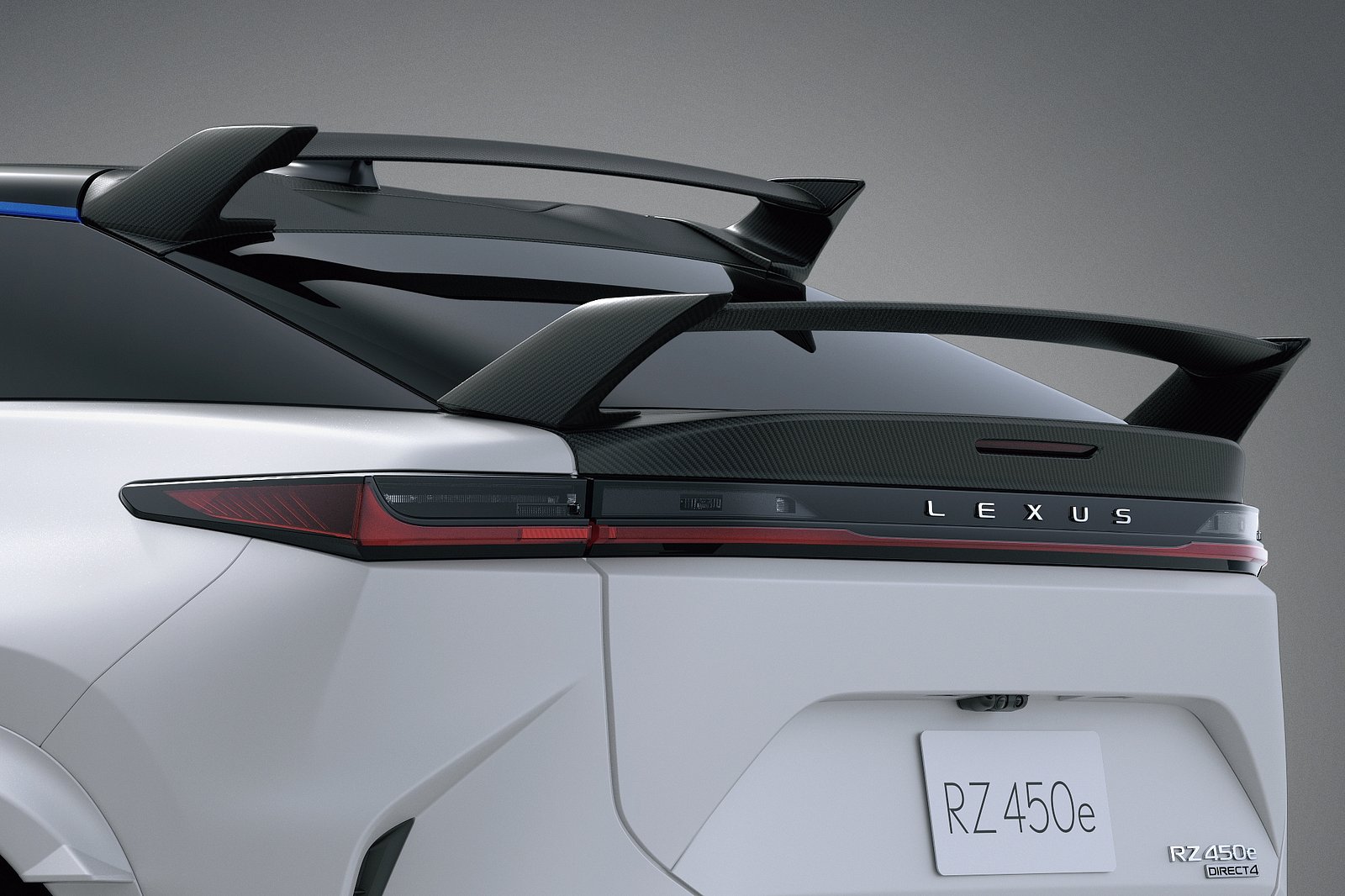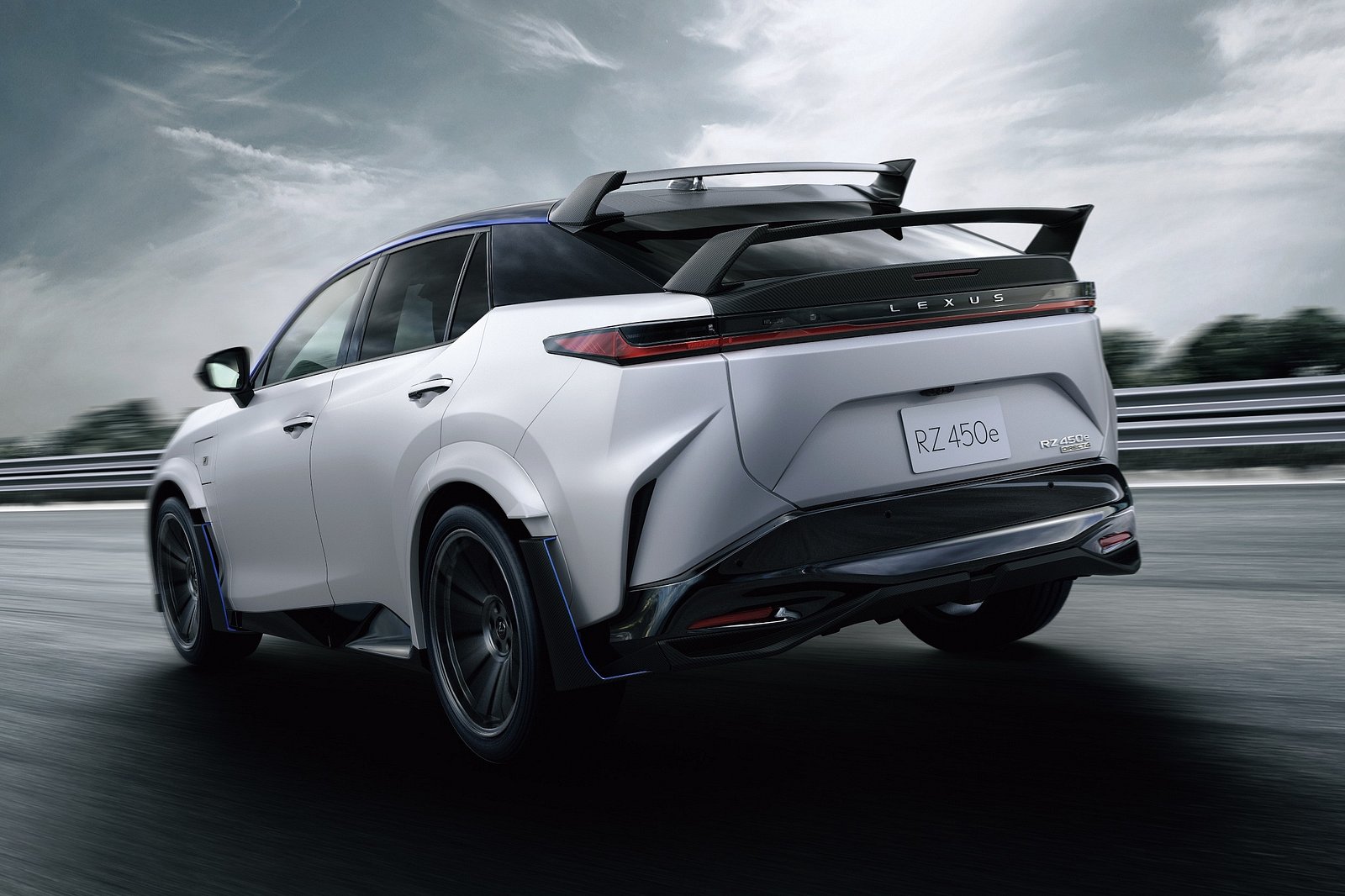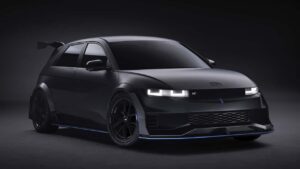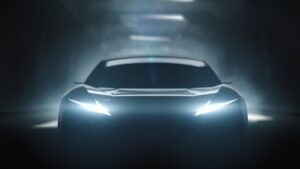Electric Era: Lexus Revs Up F Performance Badge
According to recent reports, Lexus has officially trademarked the name “Lexus RZ F” with multiple intellectual property offices. This move strongly suggests that the Japanese car manufacturer is gearing up to release a high-performance version of their electric crossover, the Lexus RZ. Interestingly enough, this news comes as a surprise since Lexus had previously denied any plans for a high-performance variant.
According to CarBuzz, there have been recent findings of trademark applications with the European Intellectual Property Office (EUIPO) for two names: “Lexus RZ F” and “RZ F” separately. These filings were later identified at the UK Intellectual Property Office and other similar offices.
Categorized as Class 12, which deals with motor vehicles, the logos are quite revealing. These fresh trademarks continue the trend of those filed last year, hinting at Lexus’ intentions to widen its RZ lineup by introducing low-cost, less forceful options and high-priced, more potent models such as the RZ 350e, RZ 500e, and RZ 550e.
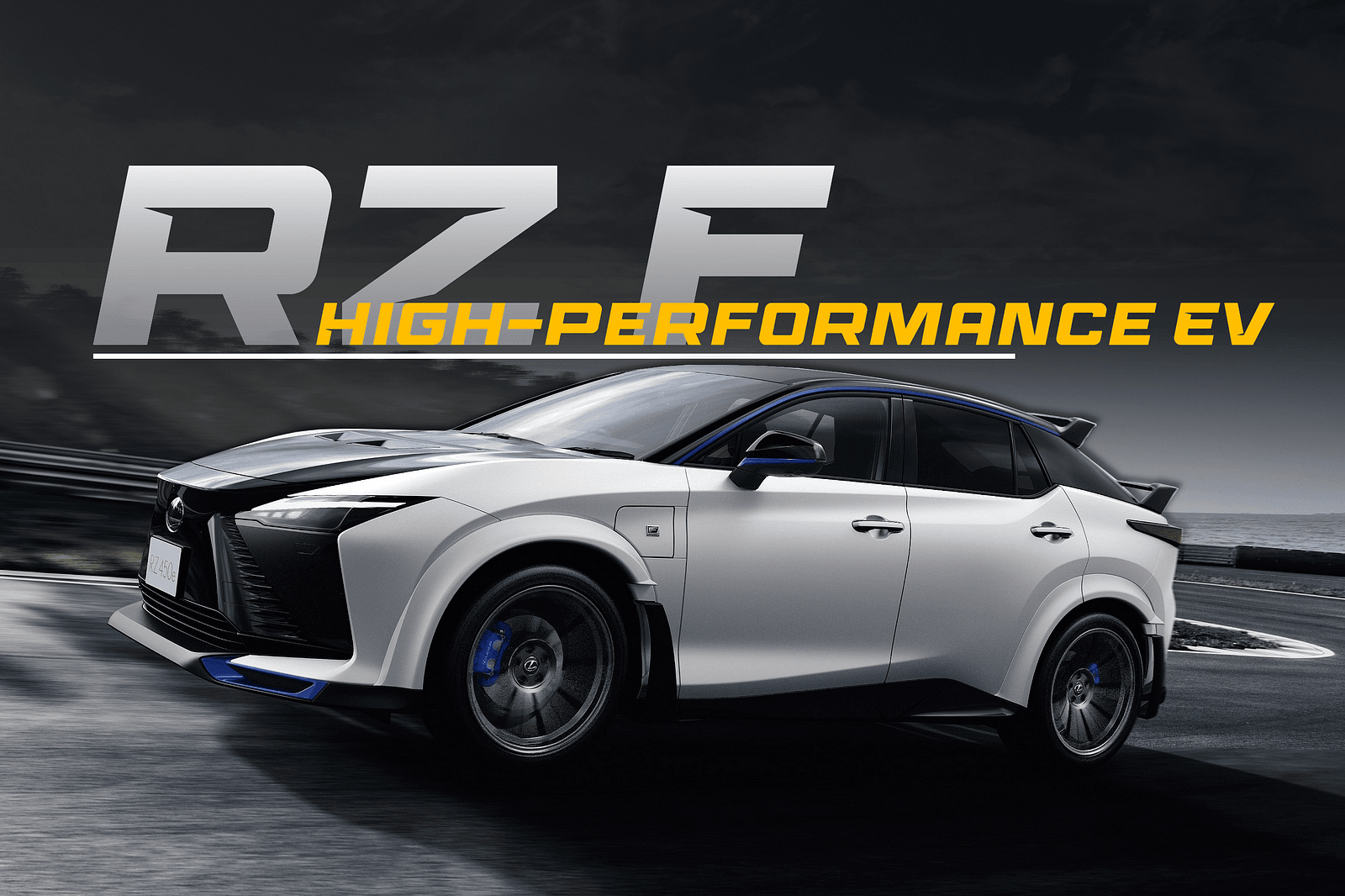
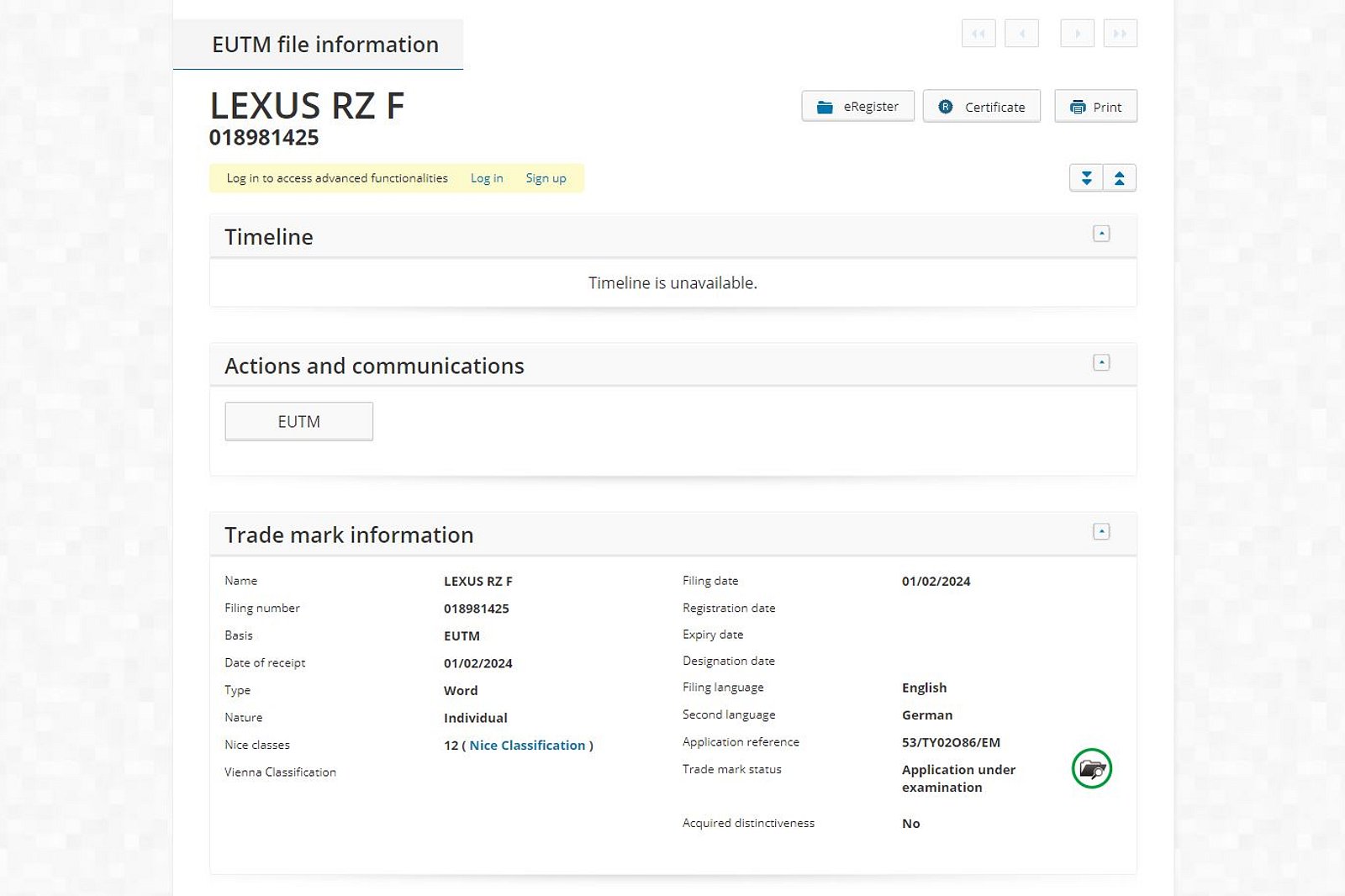
During the 2021 Tokyo Auto Salon, Lexus unveiled a new and exciting addition to their lineup: the RZ 450e F Sport Performance. This limited edition model will only be available in Japan, with a production run of just 100 units. Building on the success of the Lexus IS 500 F Sport Performance, which was introduced last year, the F Sport Performance badge serves as a bridge between the regular F Sport trims and the more powerful F variants, rather than a direct replacement for the previous IS F model.
The RZ model in question kept the original RZ 450e’s engine, which consisted of two motors producing 308 horsepower and 320 lb-ft of torque. However, it also received a number of enhancements to its appearance to give it a more athletic look, as well as specialized shocks and improved coil springs. These modifications were thanks in part to the expertise of professional race car driver Masahiro Sasaki.
An entirely pure RZ F is set to experience an augmentation in its power and customized framework adjustment, although the specifics of these enhancements are currently shrouded in mystery.
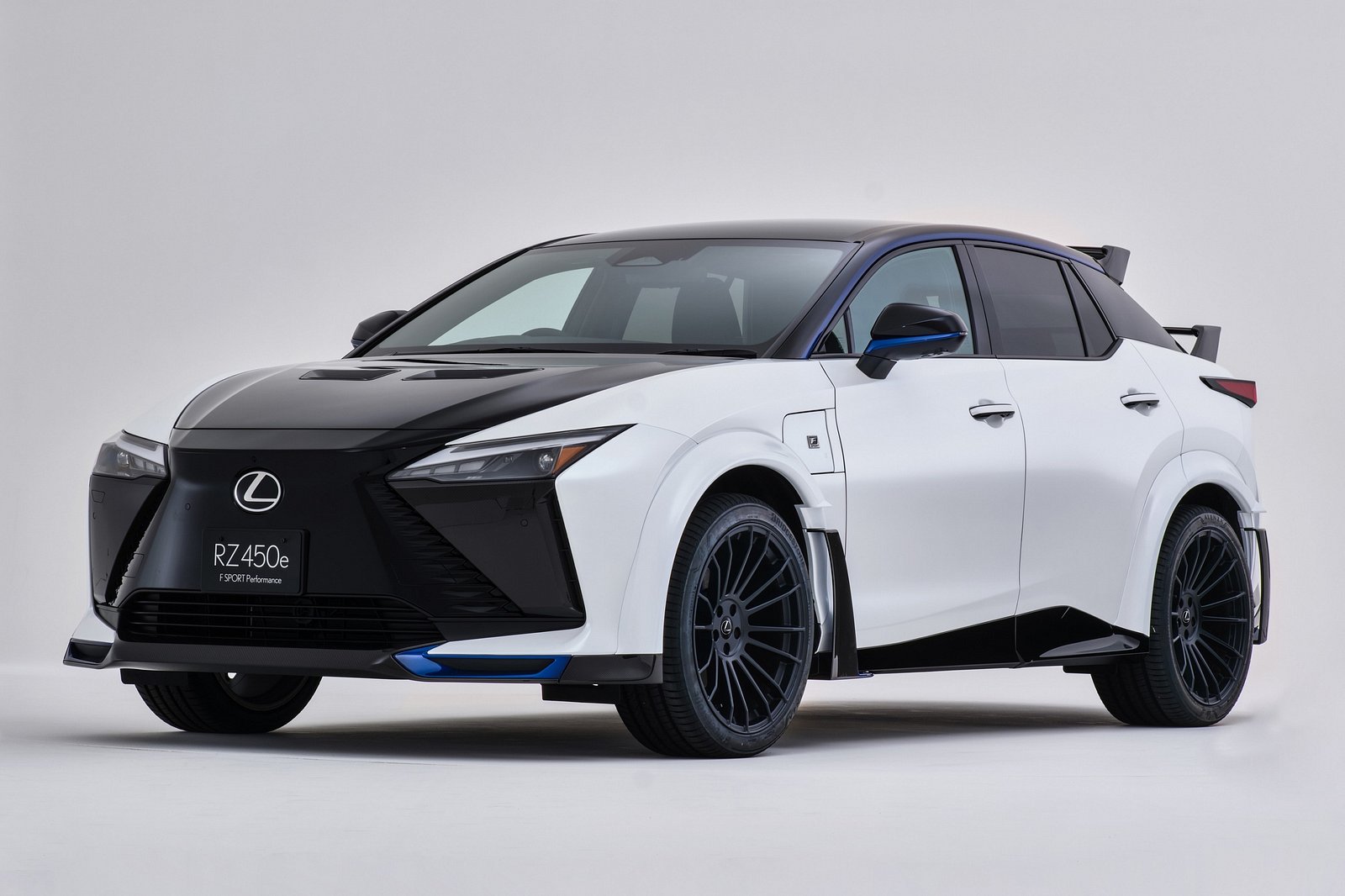
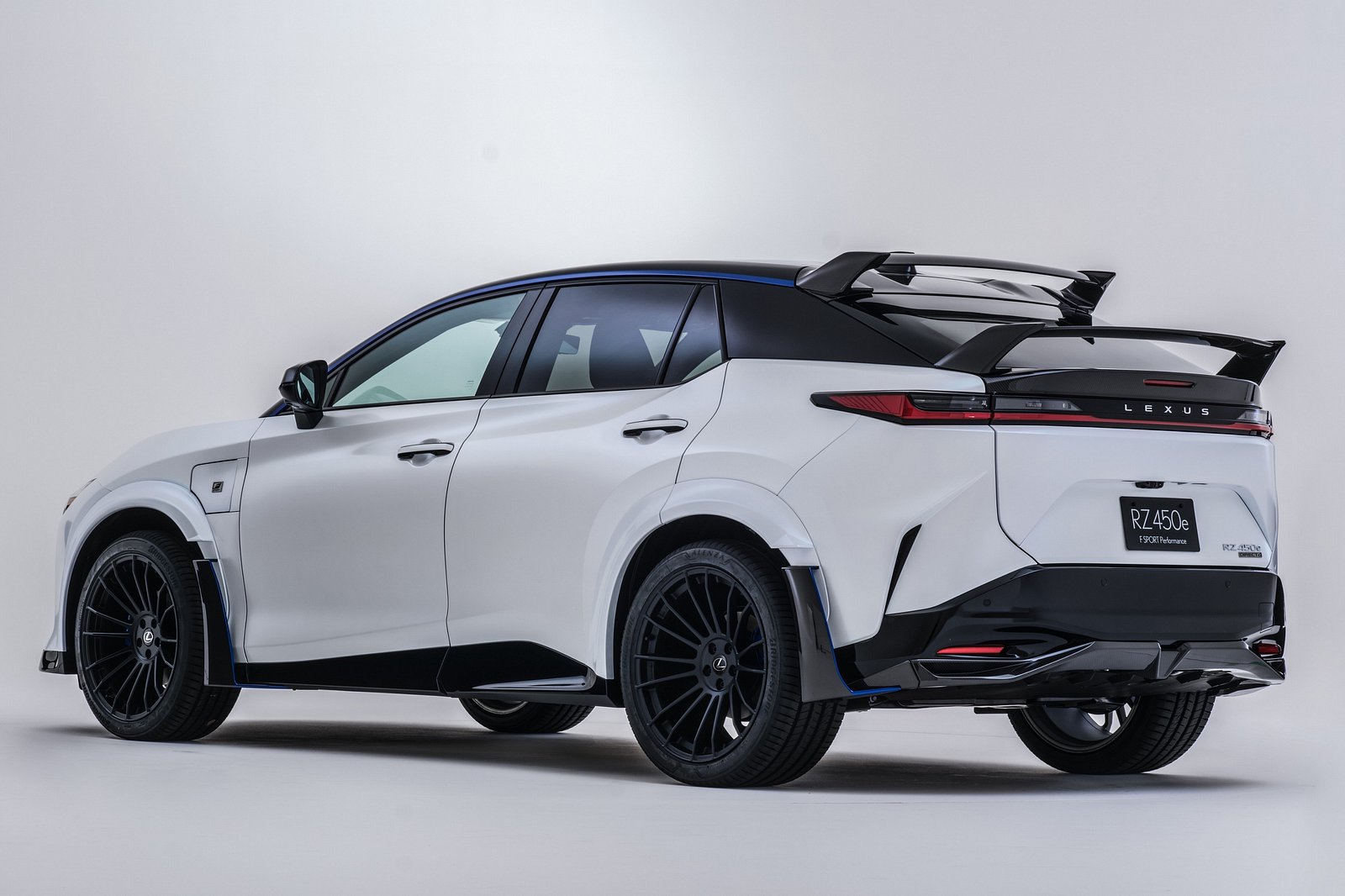

The powertrain is expected to come equipped with fresh motors (either two or three) and we anticipate the inclusion of novel battery options. However, it is improbable that these will be solid-state as hybrid vehicles will be receiving them before others. Nevertheless, Toyota has additional battery solutions in development utilizing what is known as bipolar technology.
These advanced batteries aim to achieve a range of 620 miles and a charging time of just 20 minutes, while also having the capability to discharge energy rapidly enough to be suitable for use in high-performance cars. Although Toyota had previously projected that this technology would be available by 2027-2028, it is unlikely to be implemented in the RZ F model.
Instead, monopolar performance batteries are projected to launch in 2026 with estimated ranges of 500 miles and charge times of just 20 minutes. Additionally, there is a predicted 20% decrease in battery expenses compared to the current technology used in the bZ4X/RZ. This timeline appears to be more favorable for the arrival of the RZ F.
It is possible that Toyota is simply safeguarding the name for potential use, but we would bet money on the alternative scenario.
